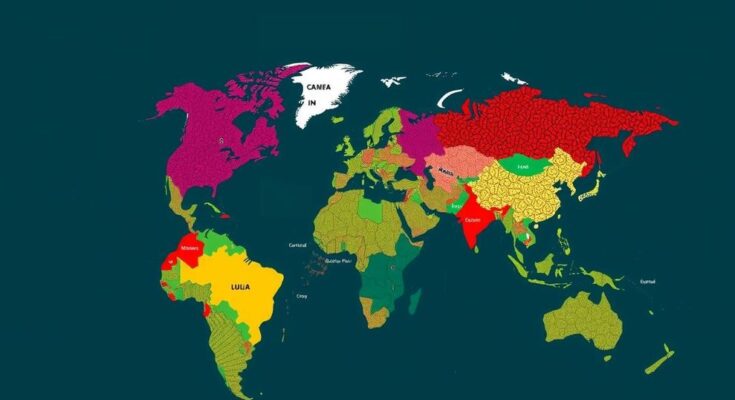At the G20 Summit, Brazilian President Luiz Inácio da Silva urged developed countries to advance their climate neutrality targets to 2040 or 2045. He emphasized the importance of accountability for historical emissions and the necessity of comprehensive Nationally Determined Contributions. Lula called for a collective determination to enhance efforts against climate change, framed within the context of current environmental challenges and commitments for future global climate negotiations.
During the G20 Summit in Rio de Janeiro, Brazilian President Luiz Inácio da Silva urged developed nations to expedite their climate change commitments by moving their climate neutrality targets forward from 2050 to as early as 2040 or 2045. Emphasizing the need for collective action on sustainable development, Lula reiterated that climate justice requires historically polluting countries to accept responsibility for their emissions. He pointed out that despite initiatives like the Paris Agreement, more needs to be done to combat the climate crisis, as the world is experiencing unprecedented extreme weather events. Lula called for the G20 to enhance their ambitions regarding Nationally Determined Contributions (NDCs) and to ensure these are comprehensive, covering all economic sectors. Notably, he highlighted Brazil’s progress, which includes a significant reduction of emissions due to decreased deforestation, and stated a commitment to eradicate deforestation by 2030. He also stressed the necessity for international cooperation in forest conservation and underscored the importance of addressing misinformation regarding climate change. At the summit, he proposed the establishment of a Climate Change Council at the United Nations to unify fragmented efforts in combating climate issues. In his concluding remarks, Lula warned that without decisive actions at COP30 in Belém, the world risks an irreversible breakdown of the climate system. He criticized the failure of wealthier countries to meet previous funding commitments, arguing that significant resources currently wasted on armaments could instead be redirected to efforts aimed at mitigating climate change. By calling for unity and increased climate ambition, he positioned the G20 as pivotal in the global challenge of climate resilience.
The topic of climate change is increasingly urgent, especially for nations facing the greatest impacts due to historical emissions from industrialized countries. President Lula’s remarks at the G20 reflect a broader global conversation regarding the responsibilities of developed nations in addressing climate change. As the world grapples with severe climate events, there is a growing demand for accountability and commitment among wealthier nations to enhance their contributions and support for mitigation efforts in developing countries.
In summary, President Lula’s advocacy for accelerated climate targets from G20 nations highlights the pressing necessity for collective action in combating climate change. His insistence on historical accountability from developed countries, along with Brazil’s commitment to sustainable practices, underlines the critical role of international cooperation in achieving climate goals. The call for significant funding and ambitious NDCs reflects a broader recognition that immediate and determined action is essential to avert climate crisis.
Original Source: en.mercopress.com




